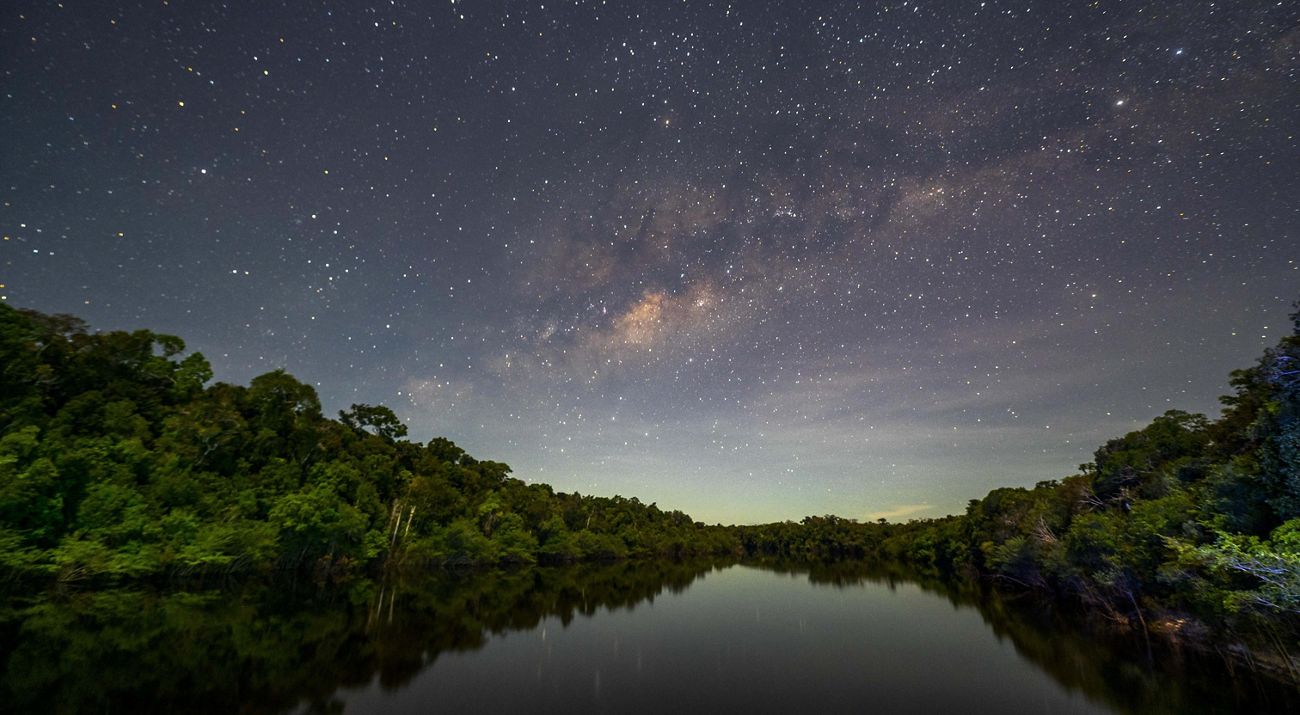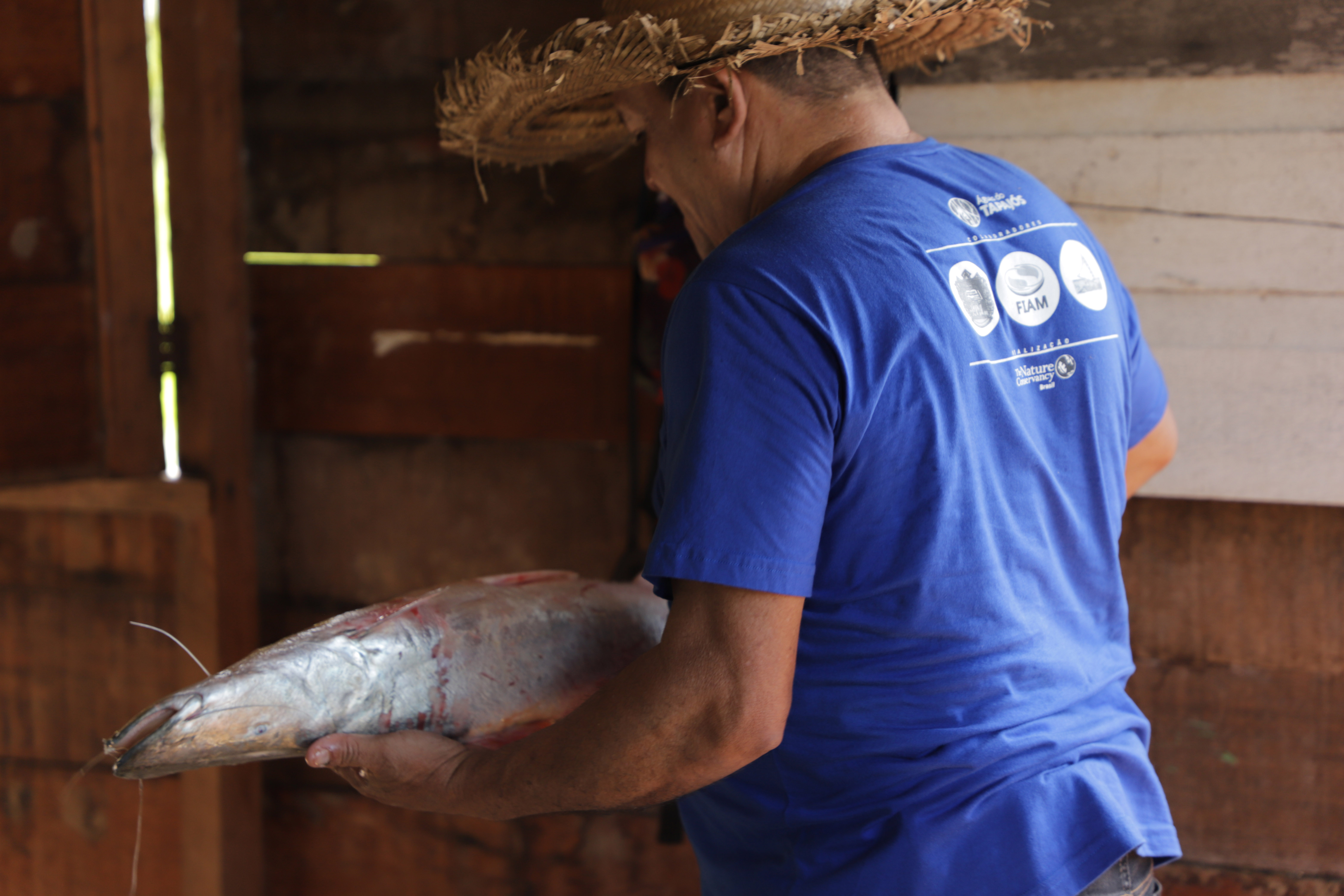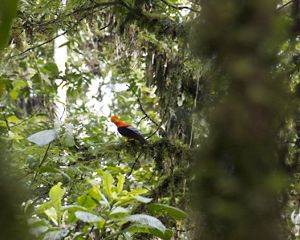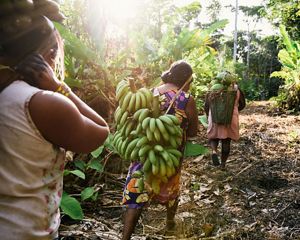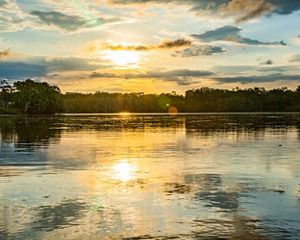Protecting the Amazon
The Amazon Rainforest is Earth's greatest reserve of life. Explore how our lives are tied to this unique place and how we can protect it.
The Amazon is the world's largest river basin and largest tropical forest—and much more. It's a vital force for maintaining Earth's delicate balance and a key player in addressing the climate and biodiversity crises.
What happens in the Amazon affects all of us. The carbon stored in this colossal forest helps keep the climate liveable across the planet. The rainforest influences rainfall and weather around the world. Its mighty rivers account for one quarter of the available freshwater on Earth.
Despite its importance, the Amazon faces unprecedented threats, primarily driven by rampant deforestation. In the past 50 years, the Amazon has lost nearly 20% of the forest in Brazil. Too often, this destruction leads to low-yielding cropfields and cattle pastures—and more forest loss.
But it's not too late. One of the reasons for hope is agroforestry, a game-changing approach to agriculture that can help break this cycle of degradation. Farmers like Brazil's Rosely Dias are leading the way.
Immersive Video
Visit an Amazon Food Forest
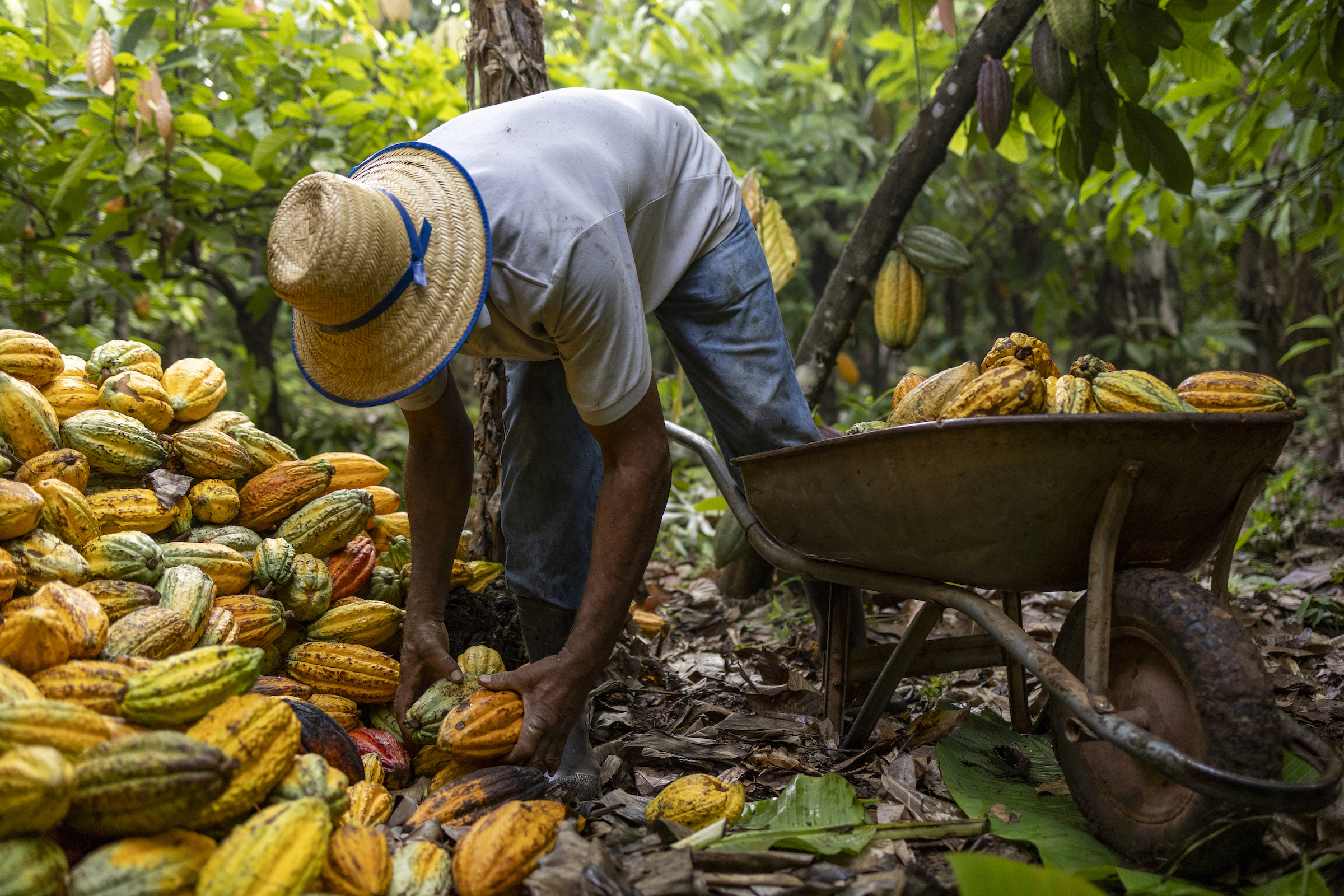
The Potential in Food-Producing Forests
Agroforestry is about planting and maintaining different native trees in agricultural landscapes that keep land healthy and productive. This natural climate solution keeps more rainforest standing, restores native trees, supports our climate and biodiversity and improves income for farmers through valuable tree crops like cocoa.
The Nature Conservancy is working with over 500 farmers like Rosely through the Forest Cocoa initiative. And there are more than 1.4 million small farms in the Amazon. The opportunity is enormous for this solution to help change the story of deforestation.

A Refresher on the Amazon
Welcome to the Amazon, a natural masterpiece that stretches across nine countries in Latin America, home to a staggering 10% of the world’s known species, including endangered pink river dolphins, jaguars, macaws, tamarins and tree frogs.
There are more than 2,700 known fish species in the Amazon Basin (1,900 of which are endemic), which amounts to roughly 8% of the world's fish species. Roughly 35 new species are described every year at an average of one every 10 days.
More than just it’s amazing diversity of life, the Amazon River is a life source for more than 47 million people living on its riverbanks and throughout its basin. Nearly 2.2 million Indigenous People, representing more than 400 different ethnic groups, call the basin home.
Above the rainforest canopy, a "river in the sky" transports moisture that regulates rainfall across Latin America and beyond, impacting food production across hemispheres.
Our global insights, right to your inbox
Leading thoughts and solutions to the climate and biodiversity crises, every month
Get our newsletterCheck out a sample Global Insights Newsletter here.
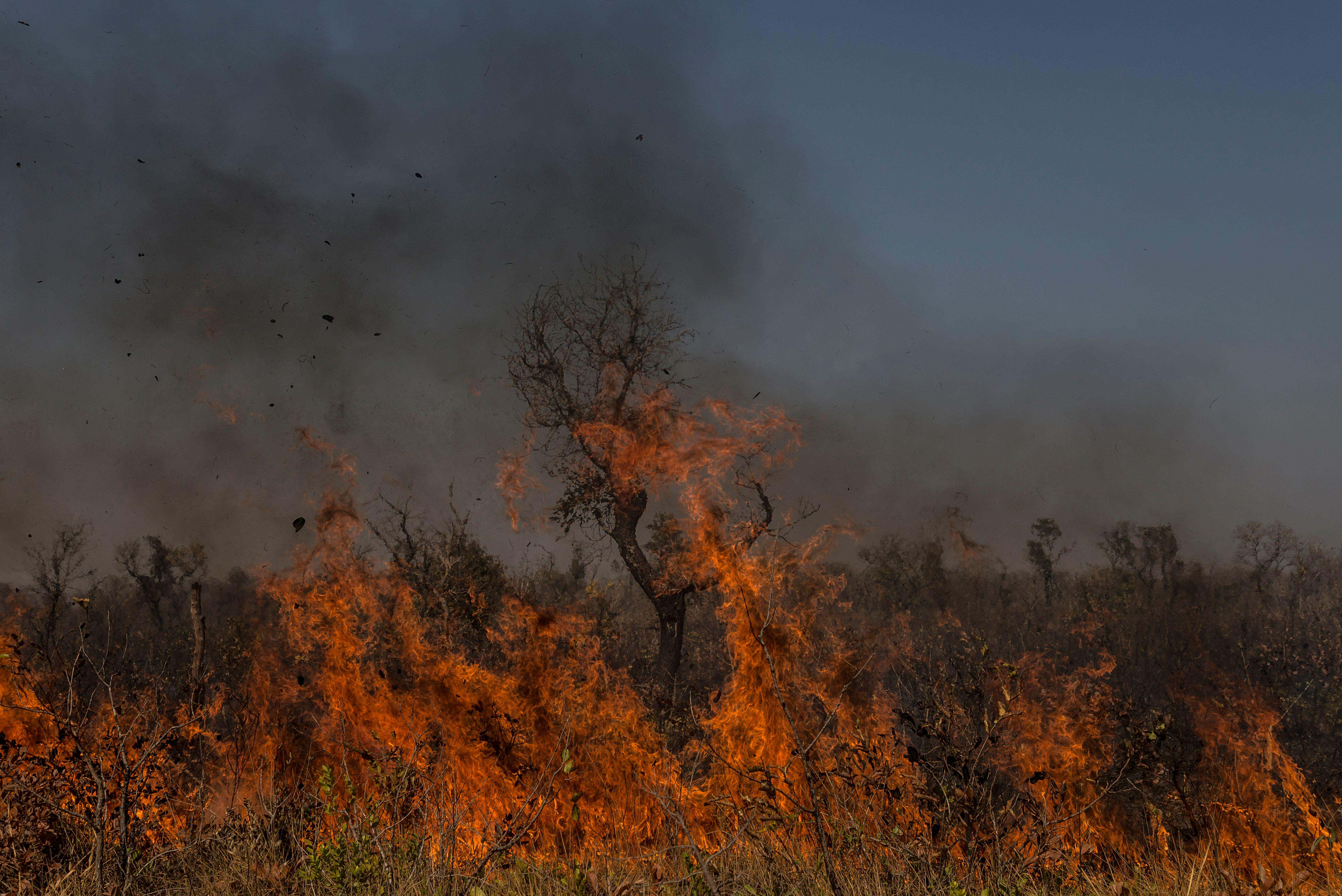
Amazon Threats and Tipping Points
Despite its critical importance to the planet, the Amazon faces unprecedented threats. Hydroelectric dams, invasive species and pollution continue to degrade its waters. Mining and urban sprawl stress rainforest ecosystems, but no threat outweighs rampant deforestation.
The current pace of deforestation propels us toward an irreversible tipping point, potentially transforming up to half of the rainforest into a fire-prone savanna.
The consequences of such a transformation would be nothing short of catastrophic for our climate. The Amazon's fate is intertwined with our collective choices and demands a concerted effort to protect and preserve this invaluable ecosystem. In this critical juncture, every action matters.
Documentary
The Great Migration of the Dorado Catfish
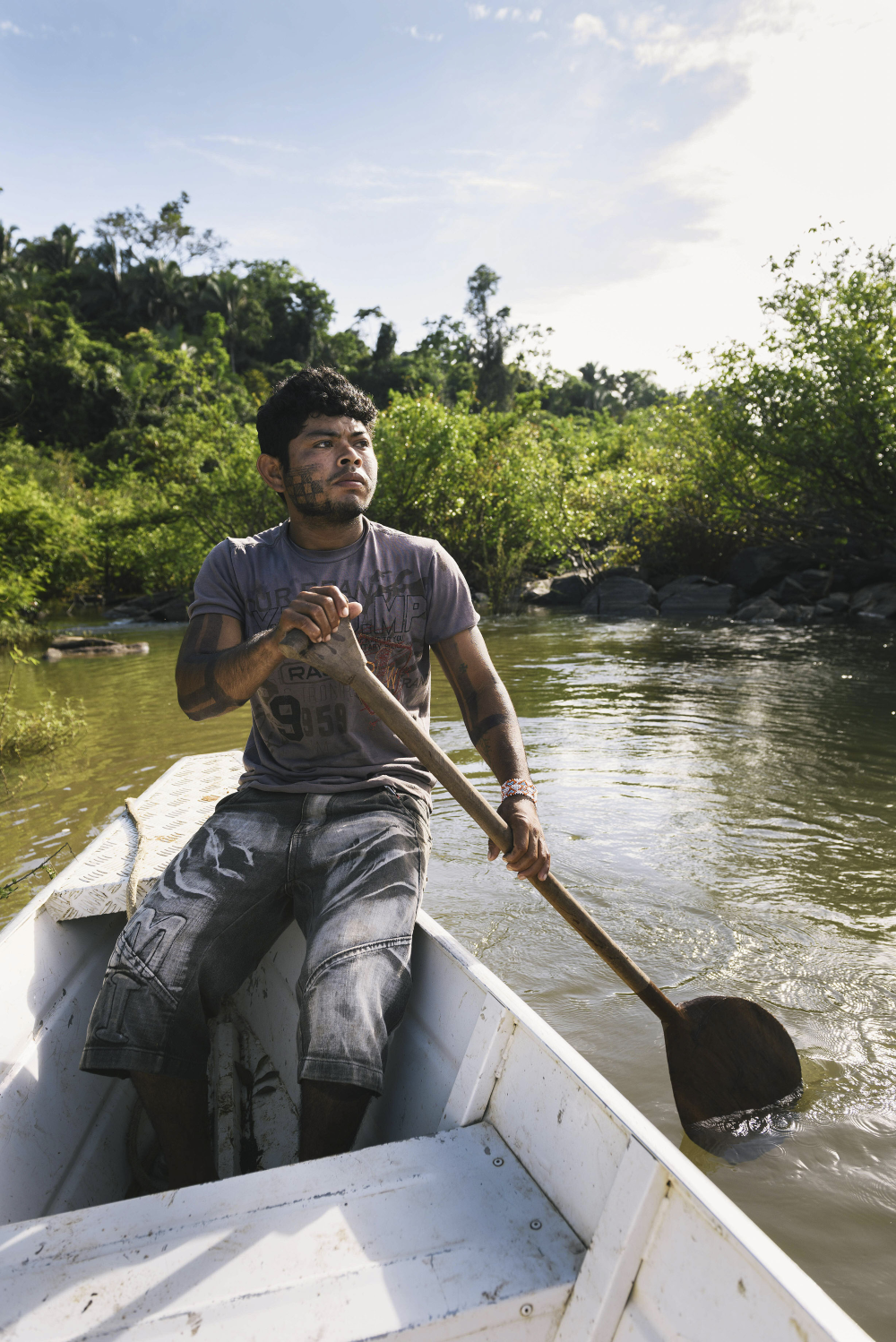
Indigenous Leadership
The forests, waters and species of the Amazon are intrinsic parts of the identities, traditions and livelihoods of millions of Indigenous People and Local Communities living throughout the Amazon.
Indigenous Peoples living throughout the Amazon basin play an essential role in its stewardship now and in the future. Indigenous territories and protected areas cover around 50% of the Amazon basin. Today, Indigenous territories are the best conserved portion of the Amazon, with even lower rates of deforestation than national parks.
Elevating Indigenous Peoples' and Local Communities' rights, tenure and roles as natural stewards of the environment are critical elements of TNC’s conservation efforts in the Amazon.
